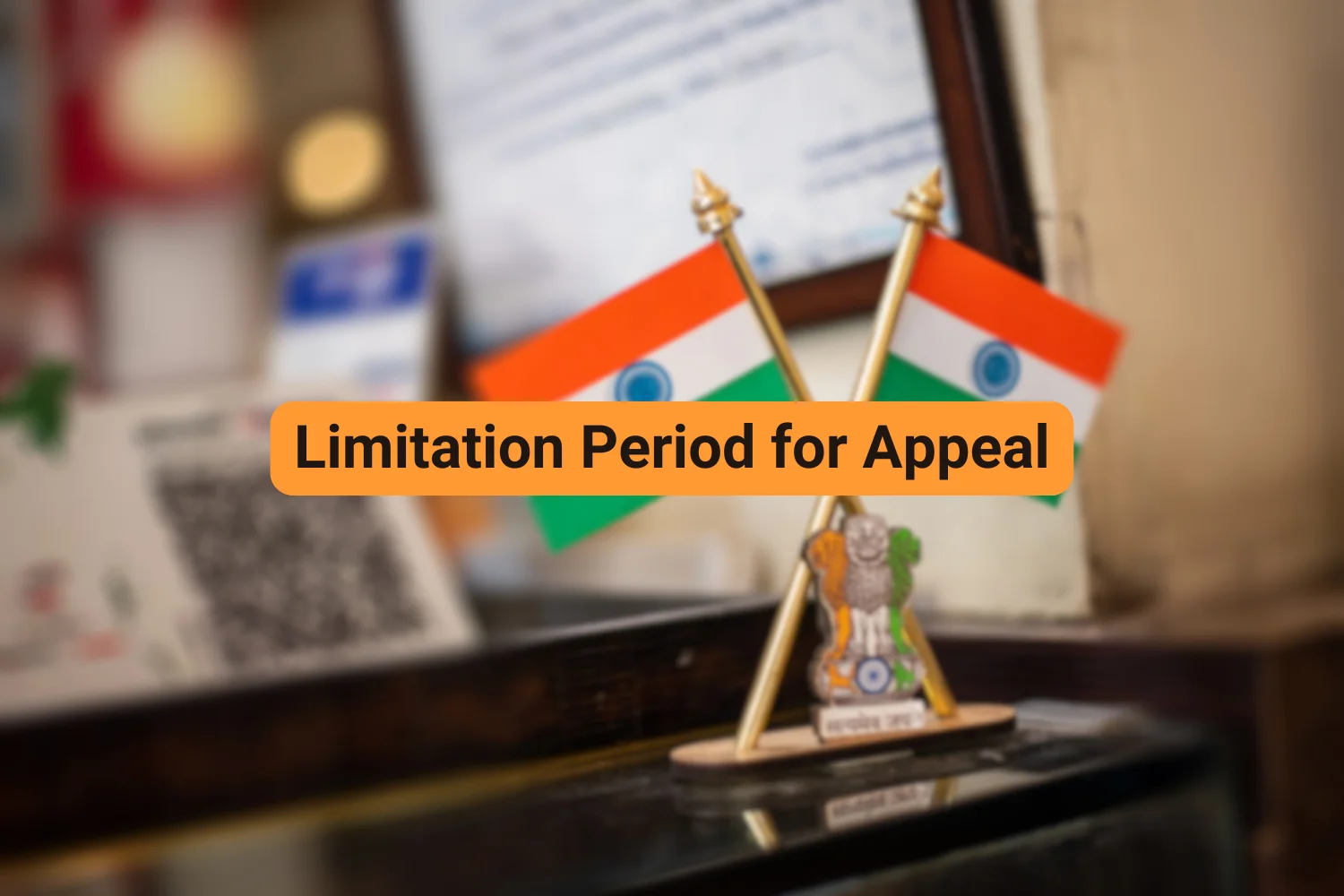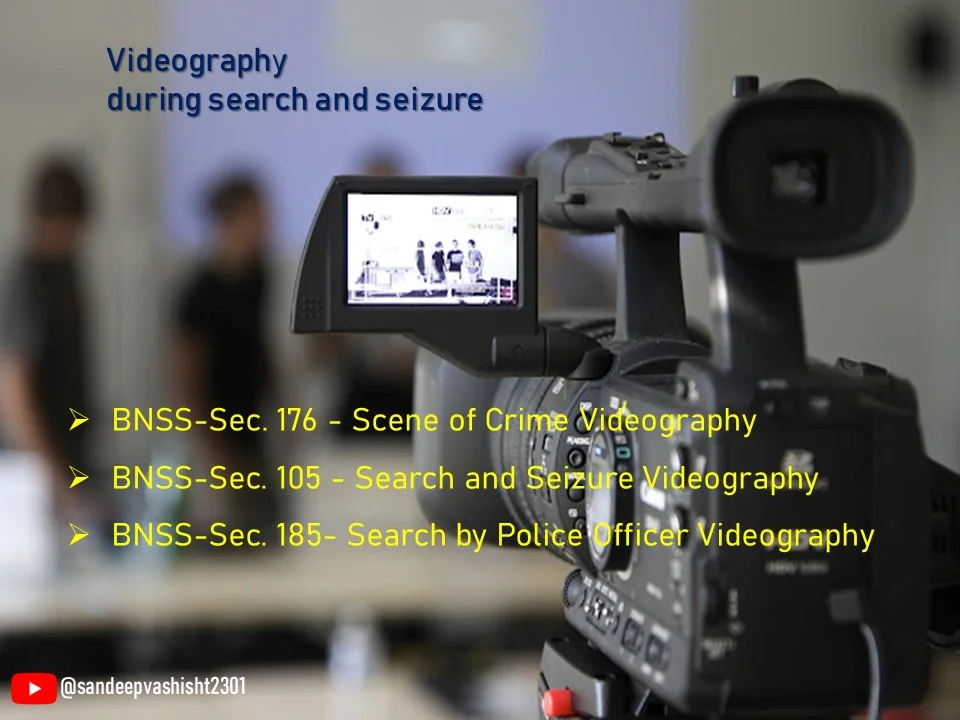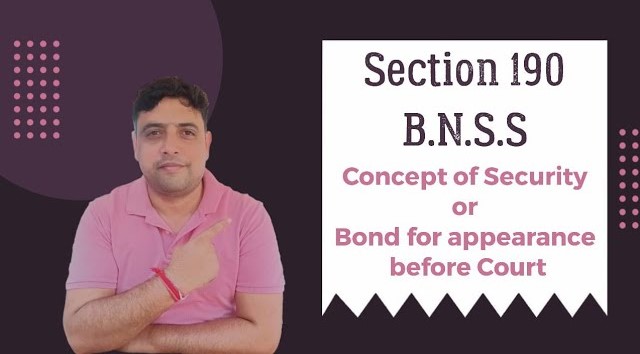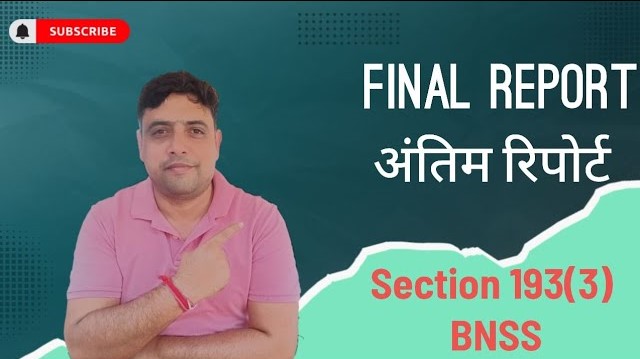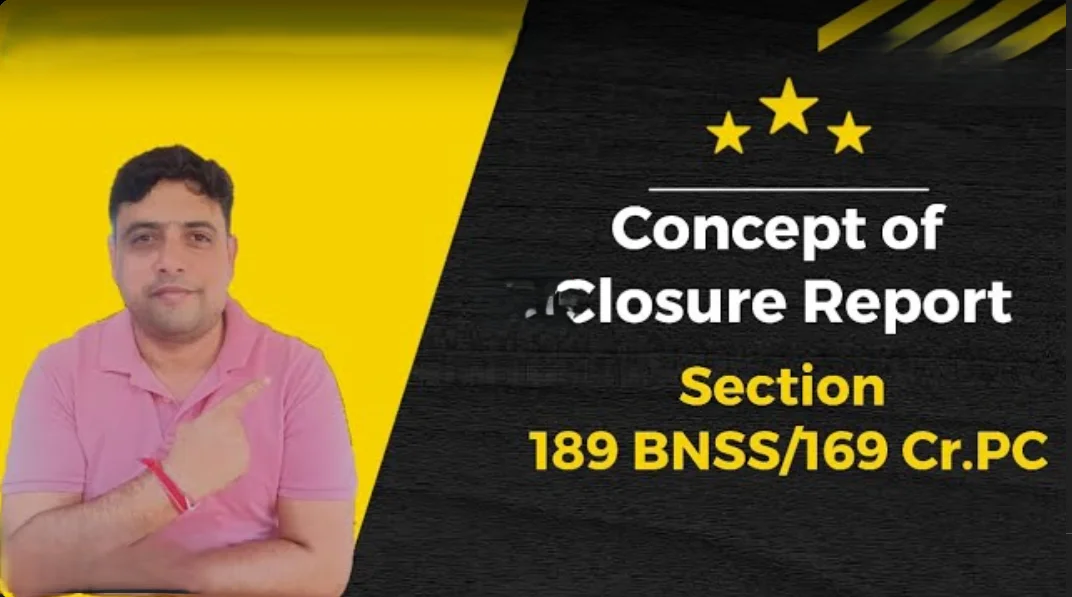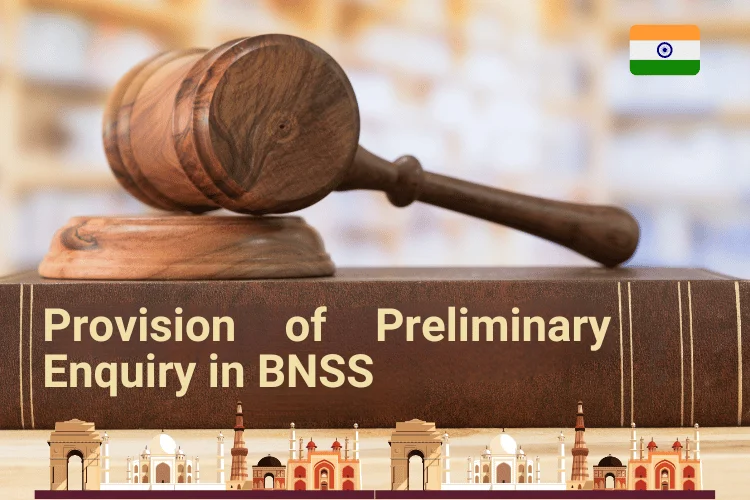Criminal Procedure: Provisions As To Accused Persons Of Unsound Mind

INTRODCUTION:
The intersection of mental health and criminal justice is a complex and sensitive issue. The Code of Criminal Procedure recognizes the importance of protecting individuals with unsound minds from criminal liability, and provides special provisions for their care and treatment. This essay explores the provisions of Chapter XXV of the Code of Criminal Procedure (Sections 328-339), which deal with the procedure for dealing with persons of unsound mind accused of crimes. We will examine the legal framework and its implications for individuals with mental health issues, and discuss the importance of a fair and compassionate approach to justice.
Section 84 of the Indian Penal Code states that “It won’t be considered an offence if the offence is done by a person who while committing was incapable to understand his actions, was of unsound mind, the act he did was contrary to law”. So if any person of Unsound mind commits any act the act will not be considered an offence and his act will fall under “General Exceptions”.
PROCEDURE IN CASE OF ACCUSED BEING LUNATIC [ SECTION 328]
- Investigation and Medical Examination:If a Magistrate or court suspects an accused person is of unsound mind and cannot defend himself, they shall:
- Investigate the fact of unsoundness of mind
- Order a medical examination by a civil surgeon or other medical officer ( as the state government direct )
- Record the examination in writing
Referral to Psychiatrist or Clinical Psychologist (1A)
- If the civil surgeon finds the accused to be of unsound mind, he shall :
- Refer the accused to a psychiatrist or clinical psychologist for treatment and evaluation
- the psychiatrist or clinical psychologist as the case may be shall Inform the Magistrate if the accused is suffering from unsoundness of mind or mental retardation.
Provided that the accused can appeal to a Medical Board if they disagree with the psychiatrist or clinical psychologist's report.
Board shall consist of:
- Head of psychiatry unit in nearest government hospital
- A faculty member in psychiatry in the nearest medical college
- Pending such Examination and Inquiry:The Magistrate may deal with the accused according to Section 330 of the CrPC.
- Finding of Unsound Mind and Further Determination:If the Magistrate or court finds the accused to be of unsound mind, they shall:
- Determine if the unsoundness of mind makes the accused incapable of defending himself and If the accused is found so incapable, the Magistrate shall:
- Record a finding to that effect
- Examine the evidence produced by prosecution
- Hear the accused's advocate
- Discharge the accused if no prima facie case is made out, and deal with him according to Section 330
- Postpone the proceedings for treatment if a prima facie case is made out, and order the accused to be dealt with according to Section 330
- Finding of Mental Retardation: If the Magistrate is informed that the accused referred under sub section 1 A to be a person with mental retardation, they shall:
- Determine if the mental retardation makes the accused incapable of defending himself and If the accused is found so incapable, the Magistrate shall:
- Order closure of the inquiry
- Deal with the accused according to Section 330
Case Law
Mohan Lal @ Ranjan Mohan Bhatnagar vs The State (Nct Of Delhi) (2011), This case is a great reference to understand this concept the contention was that the evidence presented in the court showed that various doctors had examined the appellant before the trial started. The Magistrate in proceedings under Section 328 CrPC found the man to be of unsound mind, and Magistrate passed an order too in this regard and the trial was started only when the accused was pronounced mentally fit by the respective authorities.
PROCEDURE IN CASE OF PERSON OF UNSOUND MIND TRIED BEFORE COURT [SECTION 329]: Section 329 of the Code of Criminal Procedure (CrPC)
- Initial Investigation: If the Magistrate or Court of Session suspects that the accused person is of unsound mind and incapable of defending themselves, they will:
- Try the fact of such unsoundness and incapacity
- Consider medical and other evidence
- Record a finding if satisfied of the fact
- Postpone further proceedings in the case
Referral to Psychiatrist or Clinical Psychologist (1A):If the accused is found to be of unsound mind during trial, the Magistrate or Court of Sessions shall:
- Refer the accused to a psychiatrist or clinical psychologist for care and treatment
- Receive a report from the psychiatrist or clinical psychologist on the accused's mental condition
The accused can appeal to a Medical Board if they disagree with the psychiatrist or clinical psychologist's report.
- Determination of Incapacity: If the Magistrate or Court finds the accused to be of unsound mind, they will further:
- Determine if the unsoundness of mind makes the accused incapable of defending themselves and If the accused is found so incapable, the Magistrate or Court shall:
- Record a finding to that effect
- Examine the prosecution's evidence
- Hear the accused's advocate
- Discharge the accused if no prima facie case is made out, and deal with them according to Section 330
- Postpone the trial for treatment if a prima facie case is made out
- Mental Retardation: If the Magistrate or Court finds that a prima facie case is made out against the accused and they are incapable of defending themselves due to mental retardation, they will:
- Not hold the trial
- Order the accused to be dealt with according to Section 330
RELEASE OF PERSON WITH UNSOUND MIND [SECTION 330]
If a person is found to be incapable of defending himself due to unsoundness of mind or mental retardation as given under section 328 and 329, during pending investigation or trial , the Magistrate or Court shall :
- Release on Bail: If the person can be released on bail , Order the person's release on bail, provided a friend or relative undertakes to:
- Obtain regular out-patient psychiatric treatment (if in-patient treatment is not required)
- Prevent the person from harming himself or others
- Detention for Treatment: If bail cannot be granted or an appropriate undertaking is not given, the Magistrate or Court will:
- Order the accused to be kept in a place where regular psychiatric treatment can be provided
- Report the action taken to the State Government
- Follow rules made by the State Government under the Mental Health Act, 1987, for detention in a lunatic asylum
- Further Determination: The Magistrate or Court shall further determine, If the release of the accused can be ordered, considering the nature of the act committed and the extent of unsoundness of mind or mental retardation order release if:
- Medical opinion or specialist opinion recommends discharge
- Sufficient security is given to prevent harm to the accused or others
If discharge cannot be ordered:
- Order transfer to a residential facility for persons of unsound mind or mental retardation for care, education, and training
This section deals with the release or detention of a person found to be of unsound mind or having mental retardation, pending investigation or trial, and the conditions and procedures for their release or detention
Case Laws:
Kanhaiya v. State of U.P. (2018), the Judge of the Sessions Court by Section 330 of the Code of Criminal Procedure sent the applicant to the Mental Hospital, Varanasi for evaluation and after getting confirmation from the head doctor that the applicant is of unsound mind the Magistrate rejected the bail plea under section 330 and rather sent him under custody warrant to Mental Hospital, Varanasi.
RESUMPTION OF INQUIRY OR TRIAL [SECTION 331]
- General Provision
- Whenever an inquiry or a trial is postponed under Section 328 or Section 329, the Magistrate or Court may at any time after the person concerned has ceased to be of unsound mind, resume the inquiry or trial
- The Magistrate or Court may require the accused to appear or be brought before them
- Production of Accused and Certificate of Capacity
- When the accused has been released under Section 330, and the sureties for his appearance produce him to the officer appointed by the Magistrate or Court
- The certificate of such officer that the accused is capable of making his defence shall be receivable in evidence
This section deals with the resumption of an inquiry or trial that was postponed due to the accused's unsound mind, and the production of the accused and certificate of capacity once they have ceased to be of unsound mind.
Case Law
Subhash Bhardwaj v. State (2016), the Court decided that the trial will be scheduled after the trial court gets the required IHBAS report and then completes its investigation under Section 331 CrPC.
PROCEDURE ON ACCUSED APPEARING BEFORE MAGISTRATE OR COURT [SECTION 332]
- When the accused appears or is again brought before magistrate or court there may be two possibilities:
- Accused Found Capable of Making Defence
If the Magistrate or Court considers him capable of making his defence the inquiry or trial shall proceed
- Accused Found Incapable of Making Defence
If the Magistrate or Court considers the accused to be still incapable of making his defence, the Magistrate or Court shall act according to the provisions of:
-
- Section 328 (Procedure where accused is suspected to be of unsound mind)
- Section 329 (Procedure where accused is found to be of unsound mind)
If the accused is found to be of unsound mind and consequently incapable of making his defence
The Magistrate or Court shall deal with the accused in accordance with the provisions of Section 330 (Release of accused on bail or under supervision)
PROCEDURE WHEN ACCUSED APPEARS TO BE OF SOUND MIND [SECTION 333]
- Magistrate's Assessment: When the accused appears to be of sound mind during inquiry or trial and the Magistrate is satisfied with the evidence that:
- Accused committed an act
- Act would have been an offence if accused was of sound mind
- Accused was of unsound mind at the time of the act and:
- Didn't know the nature of the act
- Didn't know it was wrong or against the law
- Proceeding with the case: The magistrate shall proceed with the case and If the accused ought to be tried by the court of session, commit him for trial before court of session.
This section deals with the procedure to be followed when the accused appears to be of sound mind, and the Magistrate's assessment of the evidence to determine if the accused should be tried for an offence committed while they were of unsound mind.
Case Laws
Dimple @ Dimpu @ Gurcharan v. State of Punjab (2008), the Magistrate stated that the petitioner was suffering from a form of insanity at the time of the commission of the offence which made him incapable of knowing the nature and quality of his act when he committed the same, so in these situation Section, 333 comes into play.
JUDGMENT OF ACQUITTAL ON GROUND OF UNSOUNDNESS OF MIND [SECTION 334]
- Specific Finding Required: Whenever a person is acquitted on the ground of unsoundness of mind
- The finding shall state specifically:
- Whether the person committed the act or not
- That the person was, at the time of the alleged offence, incapable of:
- Knowing the nature of the act
- Knowing that the act was wrong or contrary to law
This section emphasizes the importance of a clear and specific finding in cases where the accused is acquitted due to unsoundness of mind, to ensure that the facts of the case are properly established.
Case Law
Abdul Latif v. The State of Assam (1981), the Court concluded that the accused was not in a condition to know that he was doing something that was either illegal or against the law at the critical moment. As a result, the court overturned the convictions and punishments, accepted the plea of insanity and found the appellant not guilty.
PERSON ACQUITTED ON THE GROUND OF UNSOUNDNESS OF MIND [SECTION 335]
A person acquitted on the ground of unsoundness of mind shall be dealt with in the following manner as contained in section 335 of the code:
Detention in Safe Custody or Delivery to Relative/Friend: If the finding states that the accused person committed the act alleged, the Magistrate or Court shall:
- Order the person to be detained in safe custody in a place and manner deemed fit
- Order the person to be delivered to a relative or friend (Clause b)
Rules for Detention in Lunatic Asylum
No order for detention in a lunatic asylum shall be made except in accordance with rules made by the State Government under the Indian Lunacy Act, 1912
Conditions for Delivery to Relative/Friend
No order for delivery to a relative or friend shall be made except:
- Upon the application of such relative or friend
- On their giving security to the satisfaction of the Magistrate or Court that:
- The person delivered shall be properly taken care of
- The person delivered shall be prevented from doing injury to himself or others
- The person delivered shall be produced for inspection as directed by the State Government
Report to State Government:The Magistrate or Court shall report to the State Government the action taken under sub-section (1).
Case Law
Niman Sha v. State of M.P. (1995), the Court decided, based on the heinous crime the accused had committed and his mental state, as well as the risks to society, that the accused be imprisoned at the mentioned Institute of Mental Health in Gwalior until he regains normalcy after receiving medical treatment. The court stated that the accused had committed a heinous crime
POWER OF STATE GOVERNMENT TO EMPOWER OFFICER-IN-CHARGE OF A JAIL TO DISCHARGE THE FUNCTIONS OF INSPECTOR GENERAL OF PRISONS [SECTION 336]:
The State Government has the power to empower the officer-in-charge of a jail to discharge certain functions under the following circumstances:
Empowerment of Officer-in-Charge:
The State Government may empower the officer in charge of the jail in which a person is confined under:
- Section 330 (Release of accused on bail or under supervision)
- Section 335 (Detention of person acquitted on ground of unsoundness of mind)
To discharge all or any of the functions of the Inspector-General of Prisons under:
- Section 337 (Power of Inspector-General to discharge person confined under section 330 or section 335).
- Section 338 (Procedure where person confined under section 330 or section 335 is declared fit).
This empowerment allows the officer-in-charge to perform certain functions related to the detention and release of persons confined under specific sections of the law.
Case Law
Motiram Maroti Dhule v. State of Maharashtra (2002) case, the Court stated that a copy of the judgment shall also be sent to the Inspector General of Prison who is having the authority in terms of Section 336 to perform the functions under Sections 337 and 338 of Criminal Procedure Code for necessary action in the matter.
PROCEDURE WHEN A LUNATIC PRISONER IS REPORTED CAPABLE OF MAKING DEFENCE [SECTION 337]
When a lunatic prisoner is reported capable of making their defence, the following procedure as outlined in section 337 shall be followed:
Certification by Inspector-General or Visitors
- If the person is detained in a jail, the Inspector-General of Prisons shall certify that the person is capable of making their defence
- If the person is detained in a lunatic asylum, the visitors of the asylum (or any two of them) shall certify that the person is capable of making their defence
Production before Magistrate or Court
The person shall be taken before the Magistrate or Court, they shall deal with the person in following manner: -
- The Magistrate or Court shall deal with the person under the provisions of Section 332 (Procedure when accused appears to be of sound mind)
Receipt of Certificate as Evidence
- The certificate of the Inspector-General or visitors shall be receivable as evidence
This procedure ensures that a person who was previously deemed unfit to stand trial due to unsoundness of mind is reassessed and, if found capable, is produced before the Magistrate or Court to proceed with the trial.
PROCEDURE WHERE LUNATIC DETAINED IS DECLARED FIT TO BE RELEASED [SECTION 338]
Certification by Inspector-General or Visitors
When the person is detained under the provisions of sub section (2) of section 330 or section 335
The Inspector-General of Prisons or the visitors of the lunatic asylum shall certify that the person may be released without danger to themselves or others
Order by State Government:The State Government may order the person to be:
- Released
- Detained in custody
- Transferred to a public lunatic asylum (if not already sent)
Appointment of Commission:If the person is ordered to be transferred to an asylum, the State Government may appoint a Commission consisting of:
- A Judicial officer
- Two medical officers
Inquiry and Report by Commission:The Commission shall:
- Make a formal inquiry into the person's state of mind
- Take necessary evidence
- Report to the State Government
Order by State Government:The State Government may order the person's:
- Release
- Detention as it thinks fit.
DELIVERY OF LUNATIC TO CARE OF RELATIVE OR FRIEND [SECTION 339]: The provisions for the delivery of a lunatic to the care of a relative or friend are as follows:
Application and Security: A relative or friend of a person detained under Section 330 or 335 may apply to the State Government for delivery of the person to their care and custody. The applicant must provide security to the satisfaction of the State Government that:
- The person delivered will be properly taken care of.
- The person delivered will be prevented from doing injury to himself or others.
- The person delivered will be produced for inspection by an officer as directed by the State Government.
- In case of a person detained under Section 330(2), the person delivered will be produced when required before the Magistrate or Court.
Delivery and Production:The State Government may order the person to be delivered to the relative or friend. If the person delivered is accused of an offence, the trial of which was postponed due to unsoundness of mind:
-
- The inspecting officer may certify that the person is capable of making their defence.
- The Magistrate or Court shall call upon the relative or friend to produce the person before them.
- Upon production, the Magistrate or Court shall proceed according to Section 332.
- The certificate of the inspecting officer shall be receivable as evidence.
CONCLUSION:
The provisions of Chapter XXV of the Code of Criminal Procedure (Sections 328-339) demonstrate a commitment to protecting the rights and dignity of individuals with unsound minds accused of crimes. By providing for specialized procedures and safeguards, the law acknowledges the complex relationship between mental health and criminal responsibility. As we move forward, it is essential to continue refining and improving these provisions to ensure that justice is served in a fair, compassionate, and inclusive manner. By doing so, we can work towards creating a more equitable and just society for all individuals, regardless of their mental health status.







